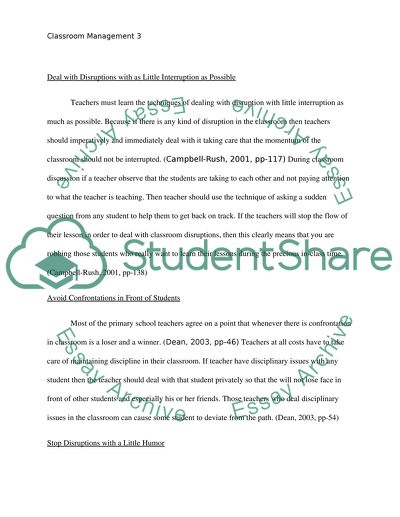Cite this document
(“Classroom Management Assignment Example | Topics and Well Written Essays - 2250 words”, n.d.)
Classroom Management Assignment Example | Topics and Well Written Essays - 2250 words. Retrieved from https://studentshare.org/education/1525852-classroom-management
Classroom Management Assignment Example | Topics and Well Written Essays - 2250 words. Retrieved from https://studentshare.org/education/1525852-classroom-management
(Classroom Management Assignment Example | Topics and Well Written Essays - 2250 Words)
Classroom Management Assignment Example | Topics and Well Written Essays - 2250 Words. https://studentshare.org/education/1525852-classroom-management.
Classroom Management Assignment Example | Topics and Well Written Essays - 2250 Words. https://studentshare.org/education/1525852-classroom-management.
“Classroom Management Assignment Example | Topics and Well Written Essays - 2250 Words”, n.d. https://studentshare.org/education/1525852-classroom-management.


